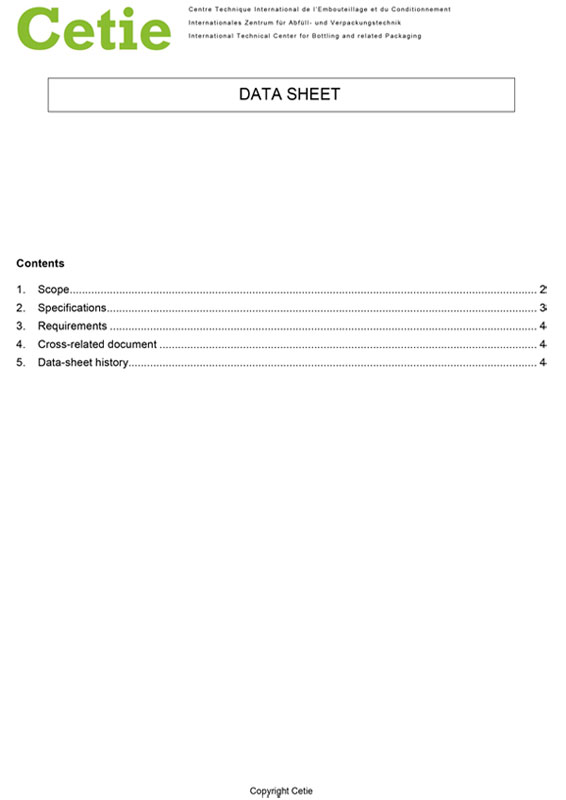How to download Cetie standards?
To download Cetie’s published standards, you must first request access by emailing contact@cetie.org. Once your request is approved, you’ll receive a free account to log in and download technical documents related to bottling, capping, filling, and packaging.
All downloads are free of charge, but the content is protected by copyright and intended for professional use.

Recently Updated Documents









 Indicative list of documents
Indicative list of documents

DT37.00 - Test method on glass flacon decorative elements - Resistance to bulk

GME51.00 - Glass bottle - Bartop stopper 27, 29, or 34 mm - neck finish, stopper and overcap

DT19.00 - Recessed labelling spotting bar

DT19.01 - Standards for labelling spotting bars

Guide No. 1 - Still wines bottling - Cork stopper application on a cork mouth finish

Guide No.14 - Bartop stopper application on glass finish for non-carbonated beverages

FS25.00 - Pilfer-proof finish - Definition and measurement of the neck finish height 'F'

GME12.10 - Finish for swing stopper

GME21.00 - Glass neck finish - Continuous thread - ø 43 to 90 mm

GME30.14 - 2-start thread pilfer-proof finishes

Upcoming meetings
26/02/2026 - Glass packaging & Inspection
14H00 - 17H00
TEAMS
10/03/2026 - Design for Recycling 14H00 - 16H00 TEAMS
11/03/2026 - Board of directors 14H00 - 16H30 Cetie
11/03/2026 - Ordinary General Assembly 16H30 - 17H15 TEAMS
10/03/2026 - Design for Recycling 14H00 - 16H00 TEAMS
11/03/2026 - Board of directors 14H00 - 16H30 Cetie
11/03/2026 - Ordinary General Assembly 16H30 - 17H15 TEAMS



